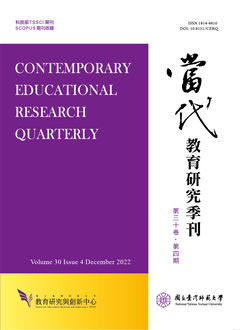

我國自1996年實施教育優先區政策,期能落實積極性差別待遇之理念,改善教育資源貧乏地區之教育環境,提升學生受教品質,然研究指出,在計畫目標、對象選取、政策推動與運作及政策效果評鑑等面向仍有改善空間。而分享共同名稱與內涵的法國教育優先區政策,自1981年起推動迄今已實施近30年,歷經四波的政策轉變,或有借鏡之處。本文透過文獻,分析法國教育優先區政策,檢視優先區概念、實施策略及評鑑內容的演變。從法國經驗中,作者歸納出四點可供我國弱勢者教育政策規劃借鏡之處:一、法國政府認知到學校無法獨力提升學生學習成效,職是之故,法國教育優先區政策以「區」為概念,整合區內中小學、政府部門、社區及家庭,透過政策橫向連結,擴充教育系統的廣度,共同解決弱勢學生學習失敗問題;二、法國政府認同教師在優先區工作所面臨的困境,除戮力建置跨層級的支持性優先區行政運作系統,強化政策推行的深度外,自1990年代末期亦開始積極提供教師亟需的專業伴隨與增能,以協助教師在教室產生改變;三、為強化教育優先區政策的效率及影響力,集中教育資源給予最不利的弱勢地區學生,政策目標亦以學生學習為重;四、官方的定期報告與實徵研究結果是歷次教育優先區政策修正的重要參考依據。
In 1996, the Education Priority Area Project (EPAP) was launched with the goal to improve the academic performance of students in disadvantaged areas in Taiwan. However, it is believed that EPAP can make additional improvements in several key areas: prioritizing objectives, determining the policy coverage rate, administrative coordination, and evaluation. Beginning in 1981, France established the Priority Education Zones program (Zones d’Education Prioritaires, ZEP), an initiative with objectives similar to Taiwan’s EPAP program. Since its implementation the ZEP program has undergone four major waves of development. The purpose of this study was to analyze the policies of the ZEP program, and examine the changes in concept, strategy, and evaluation of the ZEP program over time. Four principles of the French program may shed light on the implementation of programs for children in disadvantaged areas in Taiwan. Firstly, acknowledging that schools cannot compensate for society, the ZEP program employed a global approach to get schools, public services, communities, and families involved in efforts to improve student achievement. In other words, the policy framework was system-wide in its construction. Secondly, the struggles faced by teaching professionals in ZEP programs were recognized. In an effort to help teachers meet these challenges, the French government established a system across all levels of government to promote broad administrative supportive of the ZEP policy initiatives. Since the late 1990s, the French Ministry of Education has also fostered teacher empowerment and encouraged participation in professional development programs. Thirdly, educational resources were concentrated on the most needed areas and student learning was highlighted as a priority objective to enhance policy impact and efficiency. Lastly, official periodical reports and empirical research evidence served as evaluation tools and provided suggestions for ways to improve ZEP programs.

本著作係採用創用 CC 姓名標示-非商業性 3.0 台灣 授權條款授權.
本刊國立台灣師範大學教育研究與創新中心
106台北市和平東路一段162號 | 電話: 02-7749-3670 | E-mail: cerecerq@gmail.com
教創中心 | 師大 | 電子報 | 線上投審系統
本刊由國家科學及技術委員會人文社會科學研究中心補助經費
© 2014 CERI-NTNU
